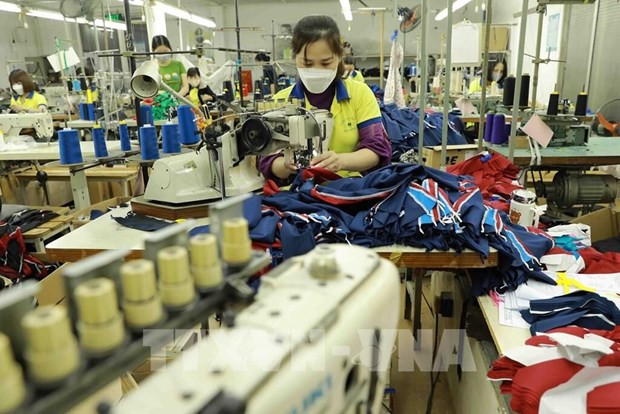
The responsibility has been prescribed in the 2020 Law on Environmental Protection, which is expected to contribute to enhancing the reuse, recycling, and reduction of waste, and changing the habits of both manufacturers and consumers, towards a circular economy.
Dr. Phan Tuan Hung, Director of the National Extended Producer Responsibility Council Office, called the EPR an economic tool that follows market principles, and a new policy approach to deal with waste problems.
The EPR also promotes the recycling industry and provides economic and employment opportunities, and helps the Government achieve its environmental goals, he continued.
If properly and fully implemented, the EPR would ensure the circulation of resources between the input and waste stages in the production process and help achieve the goal of no emissions, Hung explained.
“No matter what form of recycling a manufacturing enterprise chooses, cash will flow to businesses that collect and recycle waste,” he said.
But only advanced and modern recycling technologies that meet environmental standards would benefit from the EPR policy, he stressed, adding that small recyclers who struggle to acquire advanced technologies should join hands.
This is the first year of EPR implementation in Vietnam, and the hope is to create a change in the process of promoting the circular economy.
Local manufacturers and importers have embraced EPR quite early.
In 2021, nine enterprises, including TH Group, Coca-Cola, Friesland Campina, La Vie, Nestle, Nutifood, Suntory PepsiCo, Tetra Pak, and Universal Robina Corporation established the Packaging Recycling Organisation Vietnam.
Its mission is to develop a strong packaging collection and recycling ecosystem that helps increase recycling rates and minimise the rate of packaging discharged into the environment.
It has helped raise consumer awareness about recycling and waste classification and strengthen the existing packaging collection ecosystem.
In addition to the organisation’s efforts, its members have also actively responded and signed cooperation agreements with recyclers.
Suntory PepsiCo Vietnam Beverage and DUYTAN Plastic Recycling signed a strategic agreement for the supply of recycled plastic to the former to make packaging for its products in 2022-26.
In October 2023, La Vie Limited Liability Company signed a memorandum of understanding for a waste-plastic collection and recycling cooperation programme with DUYTAN Plastic Recycling.
Under the five-year programme, the two have a target of collecting and recycling 11,000 tonnes of plastic waste.
In November, Friesland Campina Vietnam signed an agreement with Dong Tien Binh Duong Paper Company Limited and Truong Thinh Mechanical Construction Company Limited to improve its waste-packaging collection and recycling capacity.
Many Vietnamese businesses are also seeking to invest in recycling plants.
DUYTAN Plastic Recycling has invested 60 million USD in a plastic recycling plant that uses Bottle to Bottle technology. The technology allows plastic to be recycled up to 50 times.
The factory is now among the five most modern and largest that recycle plastic in the world. It has a capacity of 40,000 tonnes a year.
Vietcycle Corporation and ALBA Group have established a 48,000-tonne recycling plant at a cost of 50 million USD. It uses technology from Germany to recycle and create rPET plastic that meets international standards. It is the first in the north to recycle and make food-grade plastic./.VNA